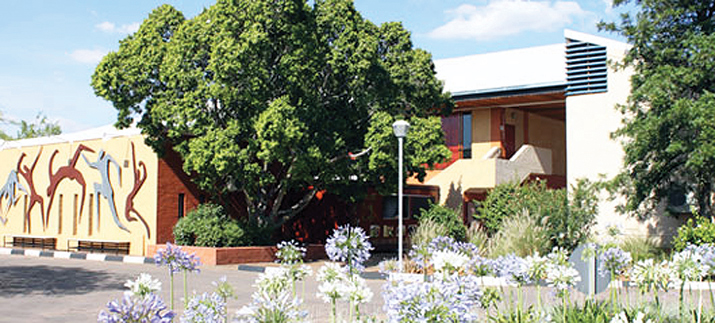One company in the Mini-Company Academy programme stands out. With revenues of up to P1000 a day, Sechaba Prime, a group consisting of nine exceptional students at Maru-a-Pula school, some as young as 15 years old, are a typical example of what can happen if more resources are invested in entrepreneurship education in secondary schools.
The Mini-company academy programme, which is currently hosted by Maru-a-Pula secondary school is a business incubator designed for students. It is an intensive 3 years ‘learning by doing’ entrepreneurship program, whereby the medium predominantly used to train students is through the running of an actual company.
“Our company made up of intelligent, hardworking and passionate Maru-a-Pula students. The company originated from the Mini-Company Academy program which started out as just another after school activity and has grown into well recognized organization within the school. The program is highly competitive, very intense and extremely fun. The programme is very strict and you have to be exceptionally disciplined to be a member and remarkably hard working in order to cope with the work. We own the PS3 Gaming expos and Tournaments in school, the school vending machine, and pretty soon we will be launching educational events which will involve bringing together many different schools,” Hani Thusi told the Gazette Business.
Thusi said the main objective is to make more money as well as making a change and leaving their mark in as many schools as they can. Whenever they reach a target or have exhausted a market, they start finding ways of exploring other markets. The Mini-Company has strict rules, which are harshly enforced. For example members pay a fine of P1 for every minute they are late for a meeting, P10 for not completing tasks on time and P10 for not completing tasks to satisfaction.
“Our obsession is to make a revenue of 1 million pula by the time we complete the Mini-Company Academy program and we are going to do so by growing organically. Our strategy has always been to start with simple and easy to set off projects that will give us a healthy cash flow, and allow us to gain credibility before we move on to bigger projects, ”said Thusi.
Kency Construction Company, owned by Barolong Mouwane is the sole sponsor of the programme, and has provided the programme with equipment worth more than P60 000, grants of up to P5000, and pays for guest lecturers and mentors at the Round Table dinners held every fortnight where students get to interact with experienced entrepreneurs.
Mouwane said the programme owes its success to several factors including recognising the students’ potential and to constantly challenging them. Another factor is that the mentor must act as a facilitator rather the deliverer of knowledge,
“There is no formula to becoming a great entrepreneur; you have to allow them to find out what works for them. And lastly the students must have access to the mentors 24 hours a day; some students like Thusi can call you at midnight because they want your opinion on idea that they have,” he said.
In December the students will partake in a mandatory month long, intensive, and highly interactive Leadership Camp that will serve as a catalyst for profound leadership transformations. Next year he said, they will be introducing a compulsory class dubbed Advance Botswana, which is meant to give mind stimulating sessions, where by students will be provided with resource materials like Harvard Business Review, Entrepreneur, and Bloomberg magazines amoung others.

